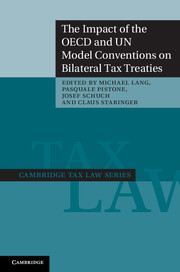Book contents
- Frontmatter
- Contents
- Contributors
- Preface
- Table of cases
- Table of statutes
- General report
- 1 Argentina
- 2 Australia
- 3 Austria
- 4 Belgium
- 5 Brazil
- 6 Canada
- 7 Chile
- 8 China
- 9 Colombia
- 10 Croatia
- 11 The Czech Republic
- 12 Estonia
- 13 Finland
- 14 France
- 15 Germany
- 16 Hong Kong
- 17 Hungary
- 18 India
- 19 Italy
- 20 Lebanon
- 21 Liechtenstein
- 22 The Netherlands
- 23 New Zealand
- 24 Norway
- 25 Peru
- 26 Poland
- 27 Portugal
- 28 Romania
- 29 The Russian Federation
- 30 Serbia
- 31 Slovakia
- 32 Slovenia
- 33 Spain
- 34 Sweden
- 35 Uganda
- 36 The UK
- 37 The USA
- Index
- References
1 - Argentina
Published online by Cambridge University Press: 05 November 2014
- Frontmatter
- Contents
- Contributors
- Preface
- Table of cases
- Table of statutes
- General report
- 1 Argentina
- 2 Australia
- 3 Austria
- 4 Belgium
- 5 Brazil
- 6 Canada
- 7 Chile
- 8 China
- 9 Colombia
- 10 Croatia
- 11 The Czech Republic
- 12 Estonia
- 13 Finland
- 14 France
- 15 Germany
- 16 Hong Kong
- 17 Hungary
- 18 India
- 19 Italy
- 20 Lebanon
- 21 Liechtenstein
- 22 The Netherlands
- 23 New Zealand
- 24 Norway
- 25 Peru
- 26 Poland
- 27 Portugal
- 28 Romania
- 29 The Russian Federation
- 30 Serbia
- 31 Slovakia
- 32 Slovenia
- 33 Spain
- 34 Sweden
- 35 Uganda
- 36 The UK
- 37 The USA
- Index
- References
Summary
The relevance of the OECD and UN Model Conventions and their Commentaries for the interpretation of Argentine tax treaties
Introduction
Argentina's concern for double taxation started very early. In 1961 a special commission in the Treasury Department was formed to deal with treaty negotiations. Even before this, as early as 1946, Argentina had entered into several tax treaties, limited to income derived from international transport activities. Argentina was probably one of the first countries in South America to enter into a general tax treaty. Its treaty with Sweden was signed on 3 September 1962 and became effective on 1 January 1963, even before the publication of the first version of the OECD Model.
After this occurred, Argentina entered into various tax treaties. The first one (the second overall) was signed with the Federal Republic of Germany on 13 July 1966. At the end of 1972, with effect from 1 January 1974, Argentina terminated this tax treaty, but it was renegotiated and a new treaty was signed in 1978. Also, even though Argentina was not a party to the Andean Pact, in 1976 it signed two – very similar – tax treaties with Bolivia and Chile based on the Andean Pact Model. In 1979 it signed tax treaties with Austria, France and Italy, and in 1980 with Brazil. All of these tax treaties were based on the 1977 OECD Model, with some differences. In 1980 Argentina signed a tax treaty with the USA, which resembled the 1977 OECD Model and the 1977 US Model, but included a tax sparing provision. This treaty, however, did not obtain the approval of the US Senate.
- Type
- Chapter
- Information
- Publisher: Cambridge University PressPrint publication year: 2012



